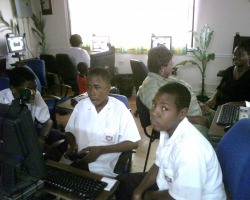Learning Disabilities/Difficulties Or Delays.

Learning disabilities are determined to exist when children have difficulty learning even though they have the cognitive capability and have been in an appropriate educational environment. Dyslexia is the term used when children have difficulty learning to read. Dysgraphia is the term used when children have difficulty with writing. Dyscalculia is the term used when children have difficulty with mathematics.
Dyslexia is the most common learning disability. Most children with dyslexia have trouble recognizing the basic sounds of speech (phonemes). They often have trouble connecting the speech sound (the “b” sound) with the letter symbol for that sound (“b”). Difficulties with phonological processing make it hard for children with dyslexia to sound out words. Because of the time it often takes to sound out a word, the meaning of the word is often lost which can result in poor reading comprehension. Trouble with spelling is often found as well, given the difficulties in putting phonemes together to form words.
Early detection of dyslexia is key to remediation. Warning signs, beginning in preschool and kindergarten, include pronunciation problems, difficulty rhyming words, problems learning the connection between letters and sounds, letter reversals, inversions, transpositions, difficulty sounding out words, and resistance to reading activities.
Because of the importance of early detection, we have begun offering dyslexia screening evaluations in addition to our full psychoeducational evaluations for learning disabilities. Our dyslexia screener is only for 5 and 6 year old children and provides very basic information to determine if intervention is necessary to promote reading success. The dyslexia screener includes a brief cognitive evaluation, pre-reading and reading accomplishments, and phonological processing. A concise written statement of the results is provided to parents. Although no diagnosis is made, the screener provides essential information for the determination of the need for intervention. It is appropriate for 5 and 6 year old children who have no attentional, emotional, or other learning issues.
Attention Deficit/Hyperactivity Disorder (ADHD)

Children with attentional difficulties vary greatly and do not all have the same problems. Children who are predominantly inattentive often ignore details, make careless mistakes, have trouble sustaining attention, problems following instructions or finishing tasks, or appear forgetful or disorganized. Children who are predominantly hyperactive-impulsive are often fidgety, have trouble staying seated, are often in constant motion, tend to talk excessively, and often blurt out answers and interrupt others. Some children demonstrate difficulties in both of these areas. Overall, it is important to note that children with ADHD can pay attention. However, they have problems with what they pay attention to, how long they pay attention, and under what circumstances they stay attentive. Their difficulties pervasively affect their life, both at home and at school. Children with ADHD generally have difficulties with working memory (the ability to keep information in mind that needs to be used to make decisions and guide behavior) and executive functioning, which includes the abilities to plan, organize, multi-task, prioritize, persist, and self-monitor when completing tasks.
In order to provide a thorough evaluation of all relevant factors in a child’s situation, we offer a comprehensive ADHD assessment. This assessment evaluates a child’s history of difficulty, current cognitive functioning, academic performance, current behavior, executive functioning, and screens for social/emotional issues.
Some children do not have any learning difficulties and pick up on information easily if they are provided circumstances that facilitate their learning (one-on-one teaching). These children have often had other possible causes of their inattentiveness or hyperactivity ruled out, either by school personnel or counselors. For these children, we offer an ADHD screening evaluation that specifically focuses on the difficulties with attention. An abbreviated write-up is provided to parents and diagnoses are made as appropriate.
Autism/Asperger's Disorder

Children in the Autistic spectrum have significant difficulties in their social and communication skills. Their language may be slow to develop, and their speech may include peculiar patterns or a formal, monotone voice pattern. Social problems may include difficulty understanding other people’s feelings, a lack of pretend play, and an impaired ability to develop friendships. Often, eye contact with others is avoided. Additionally, children frequently demonstrate insistence on sameness and routine, have difficulty with change or transitions, and may have strong interests in a particular area. Our evaluations for Autism/Asperger’s Disorder thoroughly evaluate this array of characteristics, as well as cognitive skills, adaptive functioning (everyday independence), sensory processing (reactions to sound, touch, taste, movement), and academic performance (as relevant).
Given the significance of language development and use in Autistic spectrum disorders, it is highly recommended that children complete a multidisciplinary evaluation that can thoroughly evaluate their expressive, receptive, and pragmatic language in addition to the above mentioned areas.
